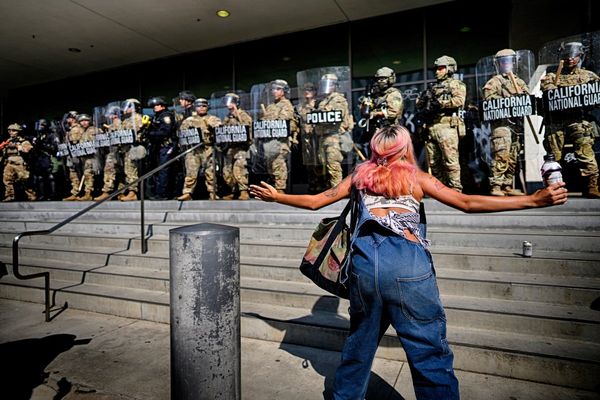
“Debunking” efforts involving police forces, community leaders and local councillors should be deployed to counter misinformation in the wake of serious incidents such as the Southport murders, according to a new analysis.
Trust in the UK government and law enforcement is so low that attempts to curb online falsehoods need to be backed up by other sources, said experts at the Centre for Emerging Technology and Security (Cetas).
“There are quite low levels of trust and confidence in government and law enforcement more generally,” said Sam Stockwell, a Cetas research associate who co-authored the analysis. “So if you can get non-government affiliated sources sharing the same kind of information and facts, you are more likely to be able to resonate and engage with wider audiences.”
The analysis studied the online reaction to the Southport attacks in July last year, which triggered social unrest in England and Northern Ireland, and a vehicle hitting spectators at Liverpool FC’s league title parade in May.
It found that a swift and coordinated response to the Liverpool incident helped reduce the risk of misinformation running rampant on the internet. The analysis added that confusion over whether details about the Southport suspect’s identity could be revealed showed that “law enforcement agencies require clearer guidance from public prosecutors”. Axel Rudakubana was jailed in January for 52 years for murdering three children in the attack.
Soon after news broke of the Southport attack, an account called Europe Invasion, known to publish anti-immigrant and Islamophobic content, said the suspect was “alleged to be a Muslim immigrant” – a claim that was false. A false name for Rudakubana also circulated online rapidly.
Merseyside police responded to the Liverpool parade incident quickly with a statement describing the suspect as a “53-year-old white British man”. Paul Doyle was subsequently charged with seven offences including dangerous driving and causing grievous bodily harm with intent.
Cetas, which is based at the AI and data science research body the Alan Turing Institute, said the police statement helped quell potential unrest by undercutting attempts to exploit the incident in support of violent or extremist agendas. It was also backed by consistent public messaging from local council officials, emergency responders and police officers, the centre said.
“Once official statements to the public have been made, it is vital that any debunking efforts take place at multiple levels and in a consistent manner,” said Cetas. “In the Liverpool case, consistent messaging across police forces, emergency service responders, local councillors and community leaders helped reinforce the legitimacy of police statements about the suspect’s true identity.”
Inability for legal reasons to reveal the Southport suspect’s identity – in order to protect the integrity of a criminal trial and not breach youth anonymity laws – led to an “information vaccum” with “unintended consequences” including the spread of conspiracy theories, said Cetas.
Jonathan Hall KC, the independent reviewer of terrorism legislation, told the BBC in February that authorities could and should have released more information about Rudakubana in the immediate aftermath of the attack. At the time, police said the suspect was a 17-year-old from the village of Banks in Lancashire, who was born in Cardiff.
“Given the rapidly spreading speculation about the ethnicity and religion of the suspects in the Southport and Liverpool cases, the swift release of information that does not compromise investigations or court cases could help quickly debunk discourse that risks becoming inflammatory and violent,” said Cetas.
The government has also revealed plans to form a national police unit that will monitor social media for signs of anti-migrant disorder. The policing minister, Diana Johnson, said the team would “provide a national capability to monitor social media intelligence and advise on its use to inform local operational decision-making”.







